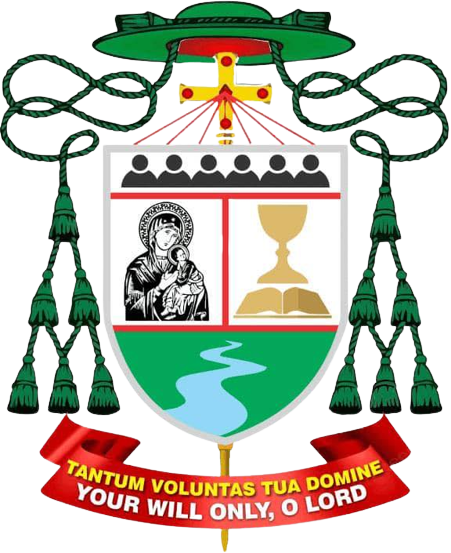Proves Beijing, Rome can work together to find men to lead Church
Yao Shun, bishop of the diocese of Ulanqab in North China’s Inner Mongolia Autonomous Region, is ordained on Monday at a church in Ulanqab.
China has ordained its first bishop since signing a landmark deal with the Vatican last year, a move hailed by the Catholic community and scholars as helpful to appointing more bishops amid a shortage.
Yao Shun, a bishop of the diocese of Ulanqab in North China’s Inner Mongolia Autonomous Region, was ordained on Monday.
Bishop Meng Qinglu, who presided over the ceremony, told the Global Times on Tuesday that it was held in a “solemn, harmonious and orderly” atmosphere.
The ceremony was attended by 100 priests and more than 1,200 Catholics. Yao is the first bishop ordained in China since a provisional agreement on bishop appointments was signed in September 2018 between the two sides.
During the ceremony, the mandate of Pope Francis was mentioned, said Meng, who is also a deputy chairman of the Chinese Patriotic Catholic Association.
Yao was nominated as a bishop in April, according to the association’s website.
Bishop Shen Bing, another deputy chairman of the Chinese Catholic Patriotic Association, told the Global Times that the ordination is a good start for China to elect and ordain more bishops, as it is a successful example of relevant formalities and procedures.
Such processes were not sorted out as the provisional agreement was not made public, but some formalities are expected to become clearer after the ordination, said Wang Meixiu, a research fellow at the Chinese Academy of Social Sciences.
It’s a result of endeavors of negotiations between the Chinese government, the Catholic community and the Holy See, said Wang.
Xu Hongwei from the Hanzhong diocese in Northwest China’s Shaanxi Province will also be ordained on Wednesday, Shen said.
“The ordination of the two bishops is the best proof that the Catholic Church is developing well in China with the support from Chinese government,” said Shen. The diocese in Central China’s Hubei Province, East China’s Shandong and Zhejiang provinces are also promoting elections of bishops, Shen added.
China faces a shortage of bishops, with around a third of the 98 diocese having no bishops and many of the older bishops are about to retire.
The ordination proves that Beijing and Rome can work together in finding new men to lead the Church amid difficulties, said Francesco Sisci, a senior researcher at the Renmin University of China and Vatican affairs expert.
This can serve as a start of future collaboration, said Sisci. Benoit Vermander, a professor of religious studies at Fudan University in Shanghai, noted that the process that led to Yao’s ordination may help establish a pattern for future bishops’ appointments.
“It is based on careful evaluation and discussions among all parties concerned as to the human, spiritual and civic qualities of the person selected, and it involves the active participation of the local Church,” he said.
“In the future, patience, dialogue and mutual trust will continue to be needed in selecting excellent pastors for the Church, which will prove to be beneficial for Chinese society,” said Vermander.
